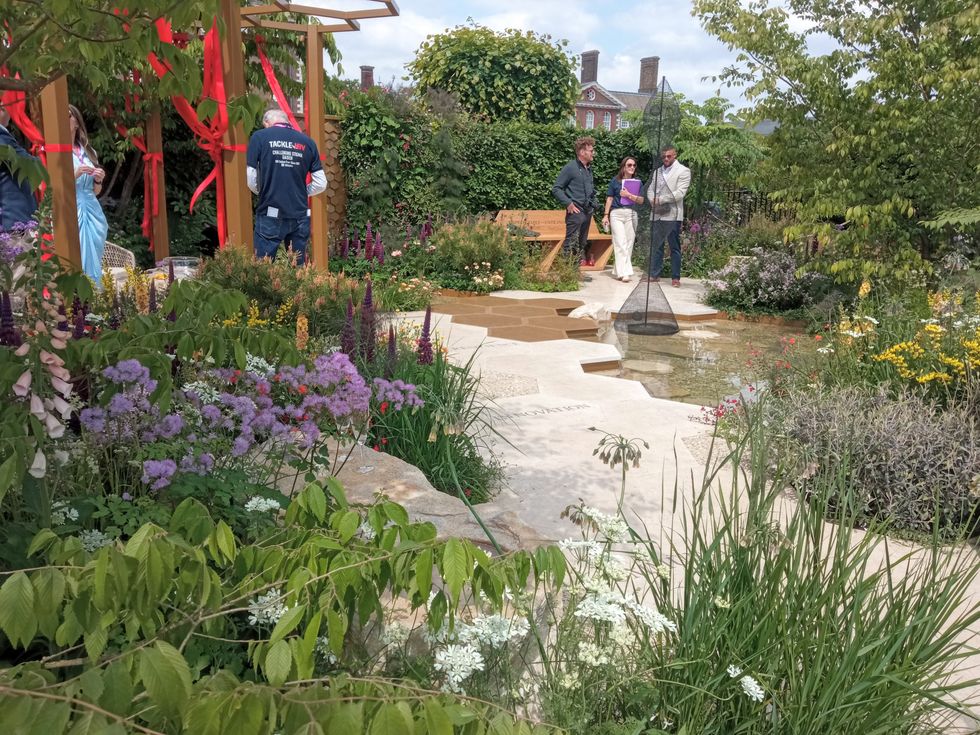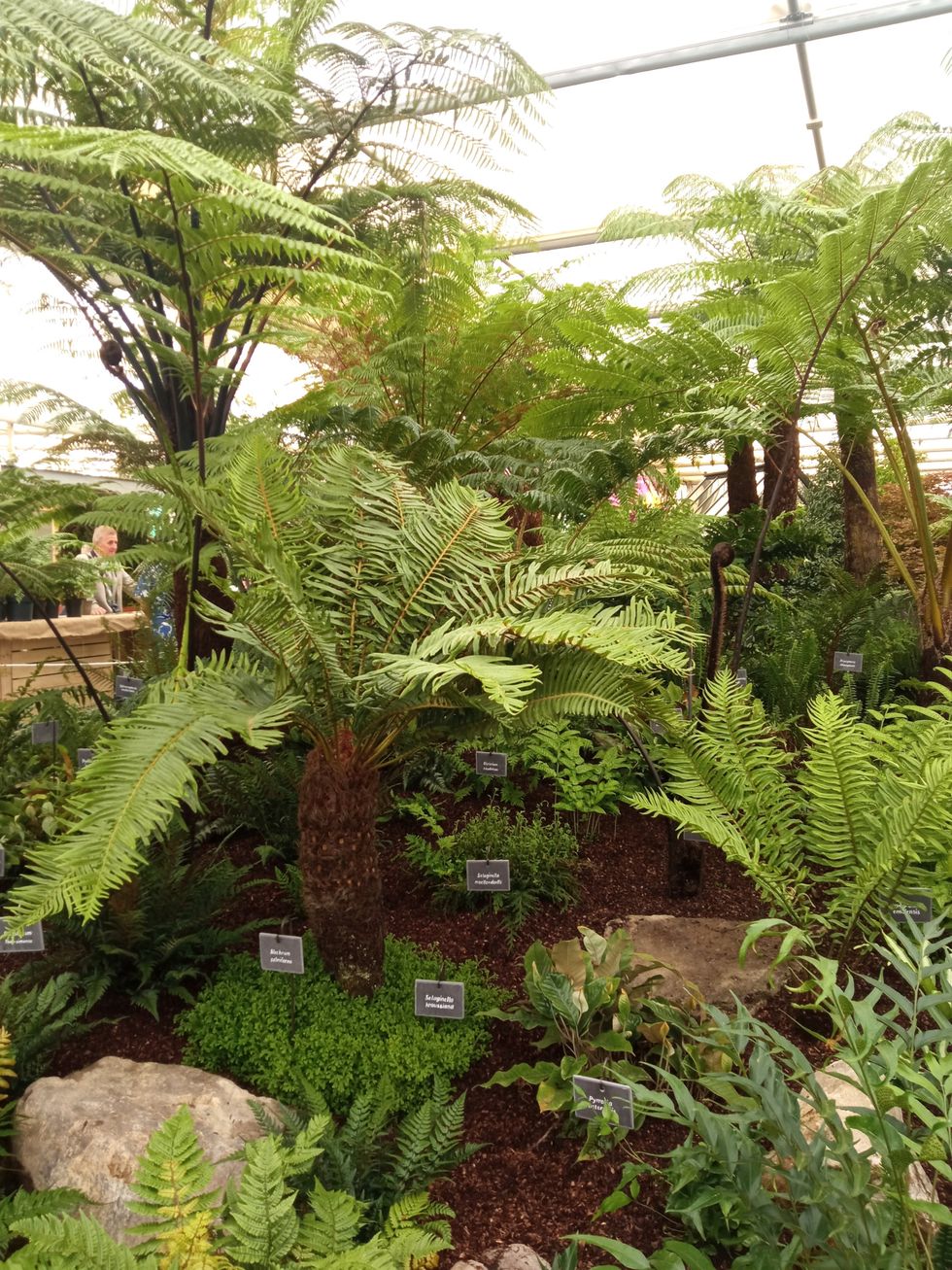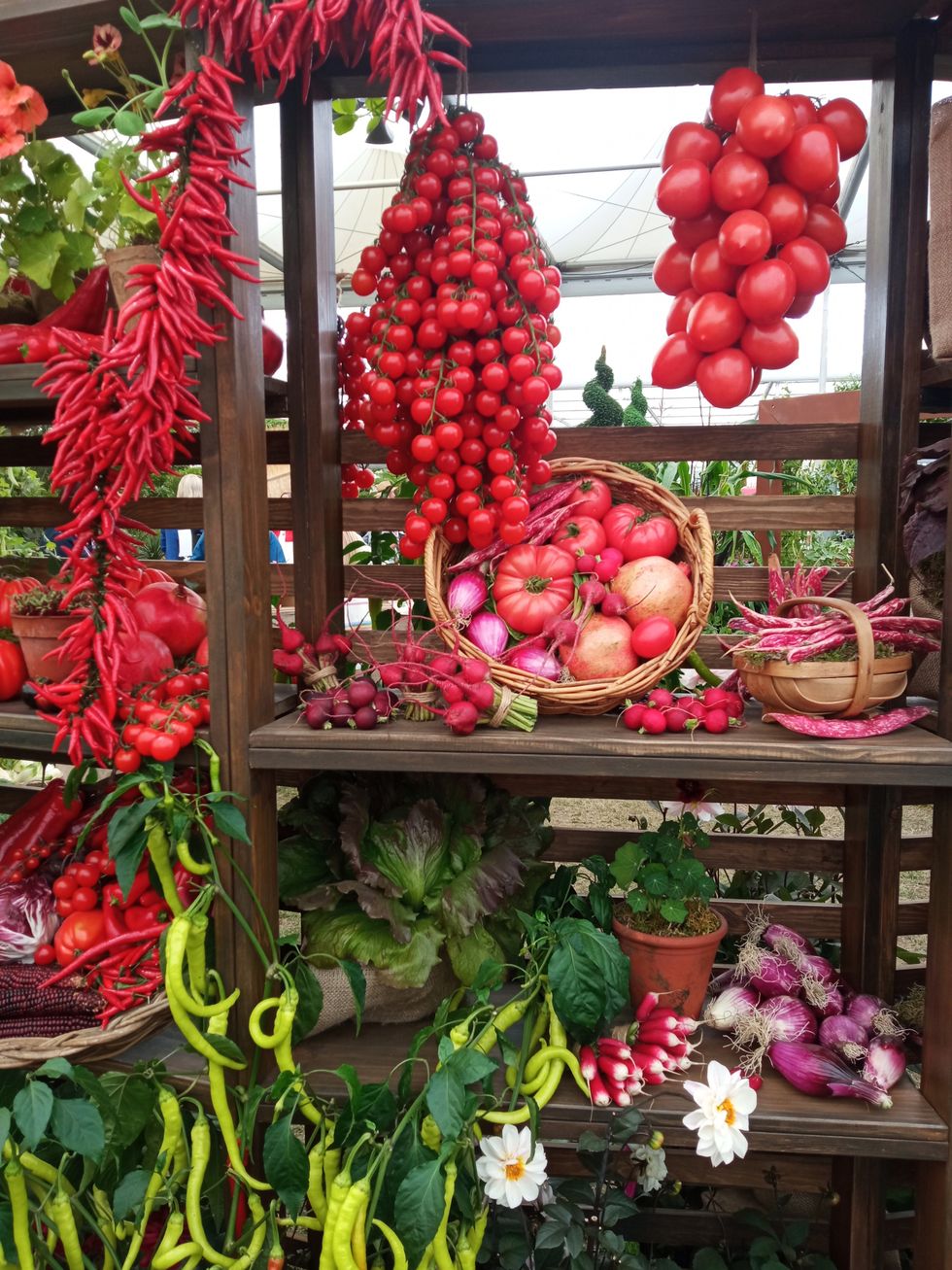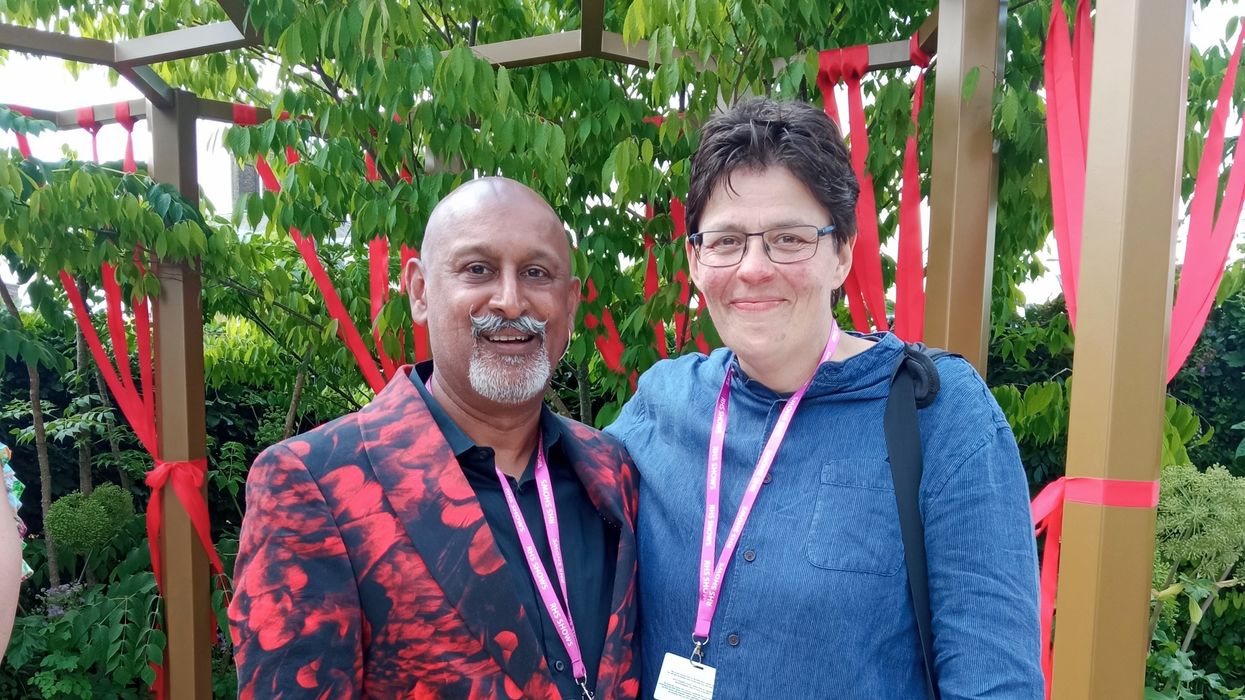IF THERE was ever a time for the British Asian community and especially Eastern Eye readers to join the Royal Horticultural Society (RHS), it is now in the wake of the Chelsea Flower Show.
The weather varies from one year to the next, but after one of the sunniest springs on record, the blooms at Chelsea 2025 have been spectacular.
And the show is always an indication that summer is on its way.
There were plenty of helpful tips on offer for British Asian gardeners, those who have been growing flowers, fruit and vegetables for years and those just starting out, from some of the leading experts in the land.
Eastern Eye spoke to Guy Barter, the RHS’s chief horticulturalist, who says gardening helps children perform better at their academic work; Sheila Das, who has a top job with the National Trust; and Manoj Malde, who designed Eastern Eye’s “Garden of Unity” at Chelsea in 2023 and has another entry this year.
Barter, who had walked around and seen what Chelsea 2025 had to offer, picked out a few entries that had caught his eye.

He referred, for example, to a stall run by women called “She grows veg” and said that it was “good to see growing vegetables is back (in fashion) at Chelsea”.
The stall, with a colourful display of everything from tomatoes and chillies, to onions, garlic and squash, urged gardeners to “Grow the rainbow”.
Its poster read: “We are all being told to ‘eat the rainbow’, as every colour of fruit and vegetable contains different phytonutrients that give us different health benefits.
“We are here to inspire and help people to grow the rainbow themselves. Growing it means that you can eat your veg at peak nutritional content (nutrient levels decline the longer it has been harvested), eat varieties you would never be able to buy in the shops and avoid using harmful pesticides.”

Barter is a great believer in getting children involved in gardening at an early age.
“Children are introduced to gardening in primary school, because they have to do other things at secondary school,” he said.
“Often, they know more about gardening than their parents because their parents were educated at a time when there wasn’t the big emphasis on gardening that there is now. So, when these children grow up and become parents themselves, we have a new generation well versed in gardening.”
Sheila Das’s late father, Kalyan Das, came from Calcutta [now Kolkata]. Her mother is English. “I feel very connected to the Indian part of me,” she said.
Das is head of gardens and parks at the National Trust in the access and conservation directorate. She has overall strategic responsibility for more than 220 gardens, and works with the organisation’s 750 gardeners and 12 regional advisors. Das was previously at RHS Wisley, where she was garden manager, responsible for education, edibles, seed and wellbeing.

She spoke about her change in career many years ago: “I was working in business and logistics as an operations and project manager, and I knew I didn’t want to do that forever.
“My mum had got an allotment, and I went to help her and discovered gardening. It combined everything I wanted to do. It was creative but I also like planning and organising – and gardening is the perfect combination.”
More than that, “I have come to appreciate the value gardeners bring. Gardeners are great for connecting people to nature. To do gardening, you need a deep insight into how nature works.”
Like Barter, she wanted to pass on a love of gardening to children.

“Talk about growing food, for example. It’s amazing that you can plant a tiny seed and end up with a cabbage as big as your head. It’s one of life’s miracles. By gardening you can support so much life if you do it in a thoughtful way.”
She addressed Asian gardeners: “You can grow coriander. I grow aubergine. This weekend I am going to plant some aubergine (seeds) and sit them in a sunny spot. They want sunshine. There’s a nice little aubergine that I grow in a pot.”
This year Malde has not had time to grow the peas that he normally cultivates at home for his elderly mother, but he hoped to get round to it as soon as Chelsea was over.
This was his third show as a designer, he said, but his sixth overall, “but the first three were on gardens working for other designers”. And since 2022, he has been an RHS ambassador, helping the organisation “open its doors wider and be more accessible for all”.
His has been one of the prettiest gardens at Chelsea this year. It was called “Challenging Stigma Garden” and was aimed at tackling prejudice suffered by those living with HIV.

As with the Eastern Eye Garden of Unity, which King Charles and Queen Camilla visited in 2023, Malde has been very thoughtful in his choice of trees, shrubs and flowers. And he had picked the hexagon shape for the paving stones to represent the molecular structure of the drugs used to treat HIV.
Except in a couple of cases, “my planting is not necessarily associated with HIV. It’s just that I wanted to bring joy into the garden because every community, every society, needs happiness and fulfilment.”
Malde also explained the words inscribed on the paving stones. He said: “Thrive, hope, resilience, innovation and community are just poignant reminders of what is important in connection with the HIV community, but also how far the medication for HIV has progressed. It allows those who are HIV positive to live really fulfilled and happy lives. They are gentle reminders that there is hope. The community does thrive. They are resilient to the stigma that they face. The medication continues to be innovated and gets better and better, and obviously the aim is that we eradicate the virus totally.
“It is so important that we include those who are HIV positive in everyday society. They should not be our outcasts. They should not be stigmatised against and it’s important to treat them like normal people.”
Malde has a specific focus in his garden, but gardening has been shown to be good for mental health.
For those who join the RHS, there is detailed personalised advice available on what to grow, what the soil will support, and what trees and shrubs would be suitable for individual gardens. Entry to RHS gardens is also free of charge.
A helper at the RHS “Let’s talk gardening” stall said that there was plenty of free advice available to non-members.




